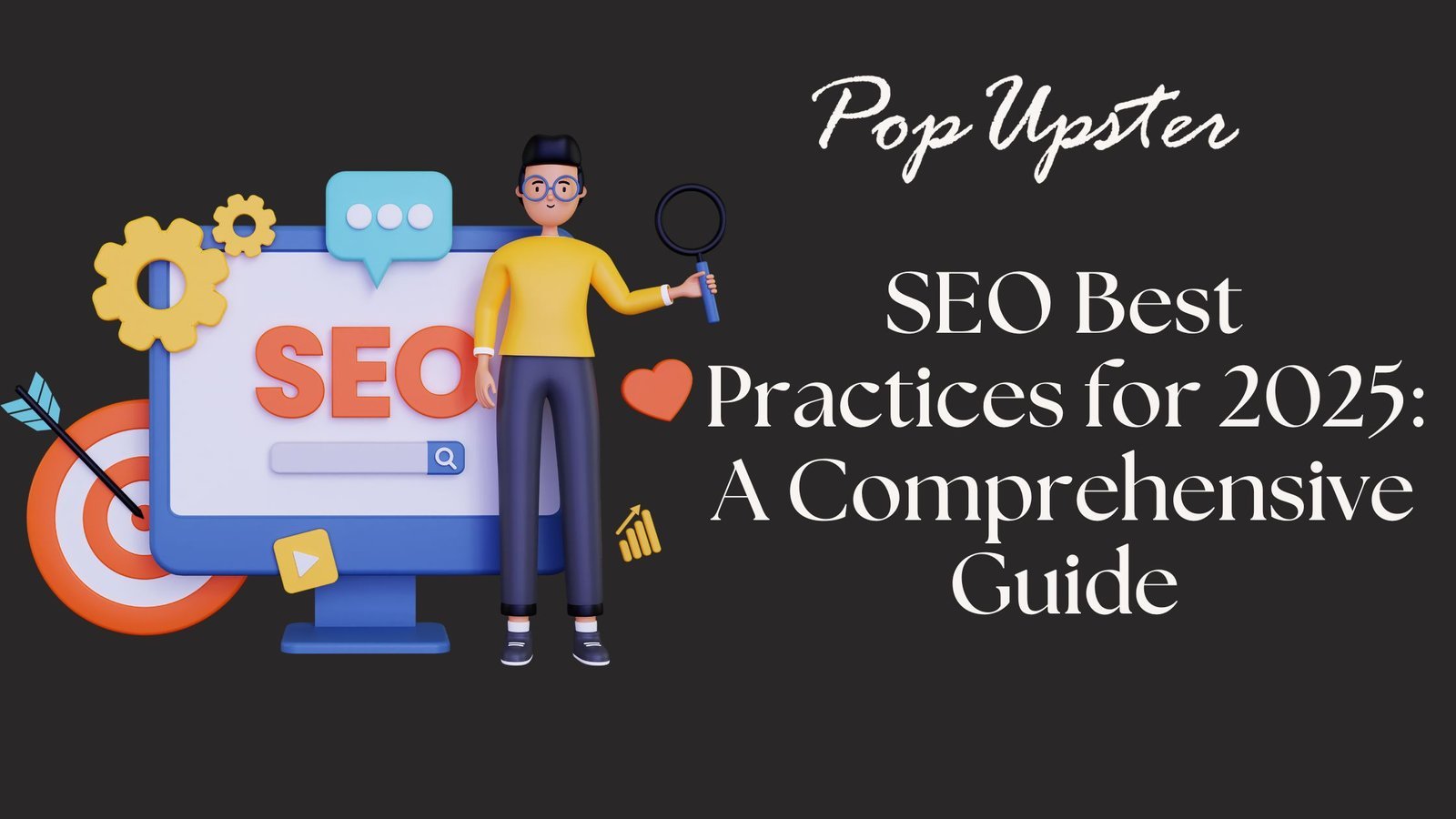Search engine optimization (SEO) is a constantly evolving field, and what worked in the past may not be effective in 2025. This comprehensive guide will outline the key SEO best practices you need to implement to achieve higher rankings, drive traffic, and improve your online visibility in the coming year.
1. Prioritize User Experience (UX)
- Why it’s important: Search engines like Google are increasingly prioritizing websites that offer a great user experience. A positive UX leads to lower bounce rates and higher engagement.
- What to do: Focus on site speed, mobile-friendliness, and intuitive navigation. Ensure your website is easy to use and provides a seamless experience for visitors.
- What to avoid: Avoid slow-loading pages, cluttered designs, and difficult navigation that frustrate users.
2. Focus on High-Quality, In-Depth Content
- Why it’s important: Content is the foundation of SEO. High-quality, in-depth content that satisfies user intent will always perform well in search results.
- What to do: Create comprehensive, well-researched content that provides unique value to your audience. Focus on long-form content such as blog posts, guides, and case studies.
- What to avoid: Avoid thin, duplicate, or low-quality content that doesn’t offer value to the user.
3. Optimize for Mobile-First Indexing
- Why it’s important: Google uses mobile-first indexing, which means it primarily uses the mobile version of a website for indexing and ranking.
- What to do: Ensure your website is fully responsive and optimized for mobile devices. Use a mobile-friendly design and test your site on different screen sizes.
- What to avoid: Avoid neglecting the mobile version of your site. Mobile optimization is crucial for SEO success in 2025.
4. Implement a Strong Keyword Research Strategy
- Why it’s important: Keywords are the foundation of SEO. Identifying the right keywords helps to attract the right traffic to your site.
- What to do: Use keyword research tools like Ubersuggest and Semrush to discover relevant keywords with high search volume and low competition. Also, utilize tools like Answer the Public. Focus on both short-tail and long-tail keywords.
- What to avoid: Avoid keyword stuffing and other manipulative tactics, and focus on using keywords naturally in your content.
5. Leverage Technical SEO
- Why it’s important: Technical SEO helps search engines crawl, index, and understand your website more effectively.
- What to do: Ensure your site has a clear URL structure, optimize your XML sitemap, and use schema markup. Pay attention to site speed, canonicalization, and crawl errors.
- What to avoid: Avoid technical errors that can hinder search engine crawlers and hurt your rankings.
6. Build High-Quality Backlinks
- Why it’s important: Backlinks are still a crucial ranking factor. High-quality backlinks from authoritative sites improve your domain authority and rankings.
- What to do: Focus on acquiring backlinks through strategies like guest blogging, content promotion, and broken link building.
- What to avoid: Avoid purchasing backlinks or engaging in black hat link-building tactics that can result in penalties.
7. Optimize for Voice Search
- Why it’s important: With the rise of voice assistants, optimizing for voice search is becoming increasingly important.
- What to do: Use conversational keywords and create content that answers questions directly. Focus on long-tail keywords and natural language.
- What to avoid: Avoid ignoring voice search, as it represents a growing segment of search queries.
8. Monitor and Analyze Your SEO Performance
- Why it’s important: Tracking your SEO efforts helps you understand what’s working and what’s not.
- What to do: Use tools like Google Analytics (GA4) and Google Search Console to monitor your rankings, traffic, and user behaviour.
- What to avoid: Avoid making Search engine optimization (SEO) decisions without analyzing your data and understanding how your efforts are performing.
9. Keep Up with Algorithm Updates
- Why it’s important: Google’s algorithm is constantly evolving, and staying informed on the latest changes can help you adapt your strategies effectively.
- What to do: Follow reputable SEO blogs like Search Engine Journal, Search Engine Land and the Moz Blog to stay up-to-date with the latest updates.
- What to avoid: Avoid neglecting algorithm changes, which can significantly impact your website’s rankings.
10. Adapt to AI-Driven Search
- Why it’s important: AI is changing how people search. Expect AI-powered search results such as Google’s AI Overviews to become increasingly prevalent.
- What to do: Optimize your content to provide clear, direct answers to questions that may be highlighted in AI search results. Create content that is comprehensive, reliable, and easy for AI to understand.
- What to avoid: Avoid neglecting the impact of AI on search behaviour, as it will continue to change the landscape of Search engine optimization (SEO).
Conclusion SEO in 2025 requires a holistic approach that combines user experience, content quality, technical optimization, and a willingness to adapt to new trends. By following these best practices, you can achieve sustainable growth, improve your search engine rankings, and drive more traffic to your website.
Need Help Growing Your Business Online?
At Popupster, we specialise in creating tailored digital marketing strategies that deliver results. Whether it’s social media marketing, content creation, or designing impactful campaigns, we’re here to help you achieve your goals.
Let’s discuss how we can take your brand to the next level. Contact us today at jd@popupster.in!




 by
by